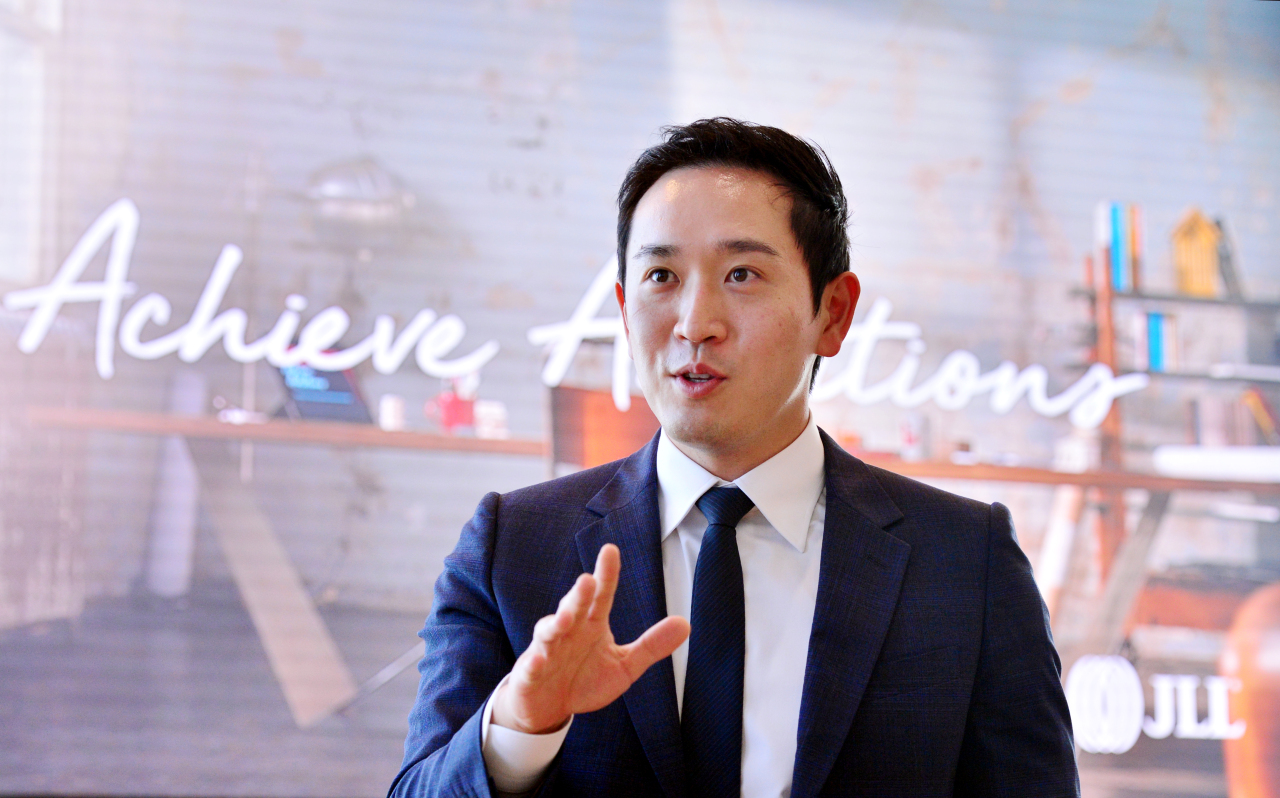[Herald Interview] Landmark Seoul hotels become homes, offices
Hospitality industry faces generational shift with ultraluxury hotels replacing decades-old business hotels
By Byun Hye-jinPublished : Nov. 8, 2021 - 15:32

Reeling from diminishing demand for cross-border business and tourism in the COVID-19 pandemic, South Korea’s hotel industry has been undergoing a drastic transition in recent months.
Landmark hotels in Seoul are turning into residential apartments and offices through redevelopment projects as owners look for a more lucrative business. At the same time, others are looking to upgrade their accomadations to ultraluxury brands, both foreign and local, according to a local real estate professional.
“Before the pandemic, hotels especially in Jongno-gu (central Seoul) were able to fill their rooms with several Chinese tour buses, partnering up with a tour agency and bearing little marketing cost. But that will not be the case from now on,” said Kim Min-joon, vice president of JLL Korea.
“Demand for ultraluxury, more luxury leisure services than what is already existing in the market, will provide many business opportunities as well,” Kim said.
Kim stressed that landmark hotels are now on the verge of survival and there will be new opportunities in the hospitality market.
Many hotel transactions involve redevelopment to address chronic housing shortages in Seoul. One of the landmark hotels in Gangnam, Le Meridien Seoul, sold for 700 billion won ($591 million) in January in one of the biggest deals of 2021 by transaction volume, and is to be changed into upscale residential projects. Sheraton Seoul Palace Gangnam was also sold earlier this year for 350 billion won and will be turned into luxury housing.
Other major hotels in Seoul, Ramada Encore by Wyndham Seoul Dongdaemun and Tmark Myeongdong, were sold to local asset management firms and are in the process of being converted for other purposes, such as co-living spaces. The parking area adjoining the Grand Hyatt Seoul was sold for 200 billion won and will be made into a mixed-use facility.
Sheraton Seoul D Cube in Guro-gu also recently sold for 131.7 billion won and will be turned into commercial office space.
Not all hotel transactions involve redevelopment for other purposes. Millennium Hilton Seoul, which operated for more than 40 years, is poised to turn into an ultraluxury hotel following a 1 trillion won deal.
International upscale hotel brands are envisioning an opportunity, bucking the trend, Kim said.
“I think Korean tourism is well positioned to benefit from the pent-up demand for travel and recovery from the COVID-19 lockdown, which has actually served as a great growth period for the Korean Wave in a very hyperconnected society,” Kim said.
International hospitality groups Accor and SBE launched their very first Asia-Pacific hotel branch, Mondrian Seoul Itaewon, in 2020. Andaz, the luxury brand of global hotel chain Hyatt, opened Andaz Seoul Gangnam in 2019.
But the market is witnessing new domestic contenders as well, Kim said.
Domestic players like Josun, Lotte, Shilla and Kensington are ramping up the competition in the luxury hotel market. Josun Hotel launched its high-end brand, Josun Palace Seoul Gangnam, in May. It teamed up with the global hotel chain Marriott to provide exquisite services.
The new phenomenon stems from local demand for hospitality services as overseas travel restrictions are likely to linger.
“Due to COVID-19, Korea’s international travel demands such as US, Vietnam or Guam have been ‘grounded’ domestically,” Kim said. “Lots of Koreans became sick of just staying at home and many are willing to pay a considerable amount of money to enjoy luxury leisure services including spas, dining, play-date programs for children.”
The most lucrative regions that hotel brands will be seeking to enter will be Gangnam, Itaewon and Yeouido in Seoul, according to Kim. Satellite cities like Pangyo in Gyeonggi Province or Yangyang in Gangwon Province, where big government projects are taking place, are also garnering attention for investment.
Since the nation’s vaccination level has increased to among the highest in the Asia-Pacific region, the government is likely move to quickly to open up borders.
“I think delayed promotion on Korean tourism could become a risk because a lot of the pent-up demand will already have spilled over to other countries,” Kim said.
Kim joined JLL Korea this year to lead the JLL Hotels & Hospitality Group practice in Seoul. Kim oversees investment sales and acts in an advisory role for the domestic market.







![[KH Explains] Hyundai's full hybrid edge to pay off amid slow transition to pure EVs](http://res.heraldm.com/phpwas/restmb_idxmake.php?idx=644&simg=/content/image/2024/04/18/20240418050645_0.jpg&u=20240419100350)







![[From the Scene] Monks, Buddhists hail return of remains of Buddhas](http://res.heraldm.com/phpwas/restmb_idxmake.php?idx=652&simg=/content/image/2024/04/19/20240419050617_0.jpg&u=20240419175937)

![[KH Explains] Hyundai's full hybrid edge to pay off amid slow transition to pure EVs](http://res.heraldm.com/phpwas/restmb_idxmake.php?idx=652&simg=/content/image/2024/04/18/20240418050645_0.jpg&u=20240419100350)

![[Today’s K-pop] Illit drops debut single remix](http://res.heraldm.com/phpwas/restmb_idxmake.php?idx=642&simg=/content/image/2024/04/19/20240419050612_0.jpg&u=)